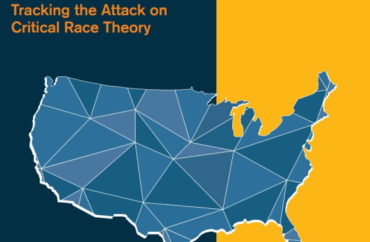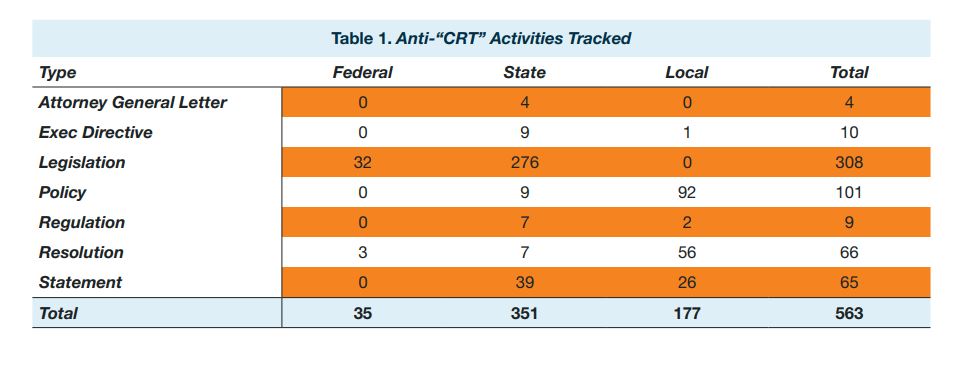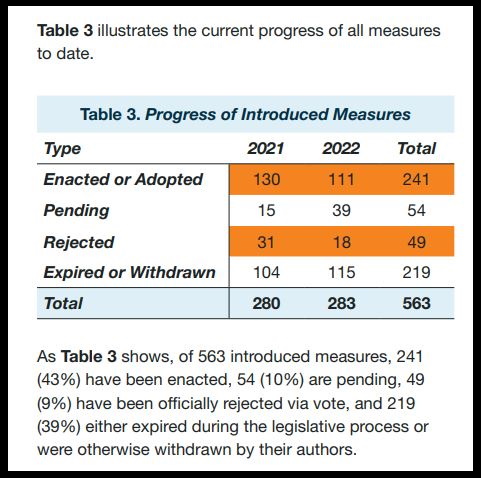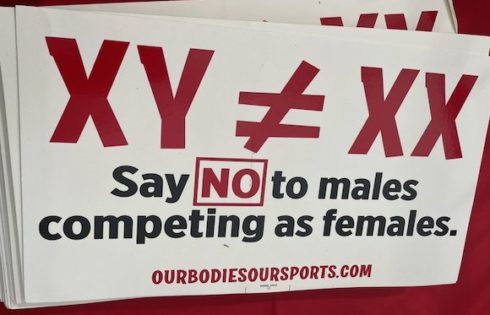
A growing number of Americans vehemently oppose critical race theory and have pushed a wide variety of measures to combat it, according to a recently released report from UCLA.
The report, “Tracking the attack on Critical Race Theory,” found that in 2021 and 2022, every state except Delaware had government officials introduce “at least one anti-CRT measure at some level.”
The report defines anti-CRT measures as attorney general letters, executive directives, legislation, policies, regulations, resolutions, and statements.
Stating the “anti-CRT campaign has to this point shown no signs of slowing,” researchers found that from January 2021 through December 2022, local, regional state and federal officials and lawmakers “introduced a total of 563 anti-CRT measures, 241 of which have been enacted or adopted.”
The findings suggest efforts to combat critical race theory, primarily inside classrooms, “is not stagnating; indeed, government officials at all levels are introducing an equal or greater number of measures in 2023 as they did in 2021 or 2022,” the report states.
Professor Taifha Natalee Alexander with the Critical Race Studies Program at UCLA Law, one of the report’s lead authors, told The College Fix in a recent interview that the report’s findings indicate students will not be able to learn an accurate picture of American history due to these anti-CRT efforts.
Professor Alexander said she believes the measures are a backlash to “truthful telling of history and access to information about racism, and CRT as a tool to dismantle systemic racism.”
 In her telephone interview with The Fix, she said if people from both sides of the political spectrum were willing to talk more openly with each other, perhaps the need for legislation banning such instruction would be unnecessary.
In her telephone interview with The Fix, she said if people from both sides of the political spectrum were willing to talk more openly with each other, perhaps the need for legislation banning such instruction would be unnecessary.
“I believe that there is a misunderstanding that all white folks are oppressors and all people of color are victims,” she said. “Critical Race theory doesn’t say that the U.S. is fundamentally racist, instead, racism has been redefined into our laws that create different circumstances for different groups of people.”
“[T]he ability to listen to people, especially folks that disagree with you, is important.”
The report is part of an ongoing project out of UCLA called the “CRT Forward Tracking Project,” which is billed as “the only database that comprehensively tracks anti–critical race theory measures — including legislation, school board policies, gubernatorial executive orders, and state attorneys general opinions — at the federal, state and local levels.”
According to the report, roughly 90 percent of these measures targeted the K-12 level, potentially affecting around 22 million children, and many also took on higher education.
“Ninety-one percent of all introduced measures (513 of 563) and 94 percent of all enacted measures (226 of 241) include as targets K–12 education and almost 20 percent of introduced measures (110 of 563) and 12 percent of enacted measures (29 of 241) target institutions 5 of higher education,” the report states.
Critical race theory, often called CRT for short, is a merged school of thought birthed from critical legal studies. It asserts that laws, policies, programs and other aspects of America are not apolitical and systematically favors white people.
While supporters of critical race theory argue that it is a way to teach history accurately, skeptics say critical race theory evades the possibility of being challenged and restricts dialogue.
One of the main arguments the report puts forth is that this anti-CRT trend started with an executive order under President Donald Trump banning the theory as “divisive.” Although President Joe Biden rescinded the order in January 2021, “conservative law and policymakers nationwide have sought to legislate or otherwise act legally to target their misrepresented version of ‘CRT’ and its alleged offshoots,” the report states.
“Nearly half of the measures lawmakers introduced borrowed phrasing — in particular the so-called ‘divisive concepts’ language — from the now-rescinded Executive Order 13950,” the report states.
Mike Gonzalez, a senior fellow at the conservative Washington-based Heritage Foundation and an expert on CRT, told the Epoch Times he found the report “fascinating.”
Gonzalez said that major CRT proponents have recently begun complaining about the massive resistance to critical race theory in schools.
“They said they had great hopes in 2020 and the beginning of 2021. But then, they encountered this level of resistance from the American people and their elected representatives. And the tide is changing,” he told the Epoch Times.
“…I think that the conservatives should not say mission accomplished,” he added. “There’s a lot to be done, a lot, a lot. But I think conservatives should be comforted by the fact that there has been significant resistance.”
A recent U.S. News and World Report poll found that 40 percent of Americans “are unconvinced that systemic racism exists.”
Touro School of Law’s Professor Daniel Subotnik said the debate over critical race theory spans decades. He is author of the 1998 paper “What’s Wrong with Critical Race Theory: Reopening the Case for Middle Class Values.”
“Yes, America has often behaved savagely towards African Americans over a very long period of time, and this has to exact a continuing historical toll,” he told The College Fix via email recently.
“At the same time, however, father absence, non-marriage, and poor school performance have sabotaged hopes of racial competitiveness,” Subotnik said, adding “there will be no hope of real socioeconomic parity unless these gaps are eliminated.”
MORE: Nearly 30 Florida colleges announce ban on anything that ‘compels belief in critical race theory’
IMAGE: UCLA report
Like The College Fix on Facebook / Follow us on Twitter






Please join the conversation about our stories on Facebook, Twitter, Instagram, Reddit, MeWe, Rumble, Gab, Minds and Gettr.